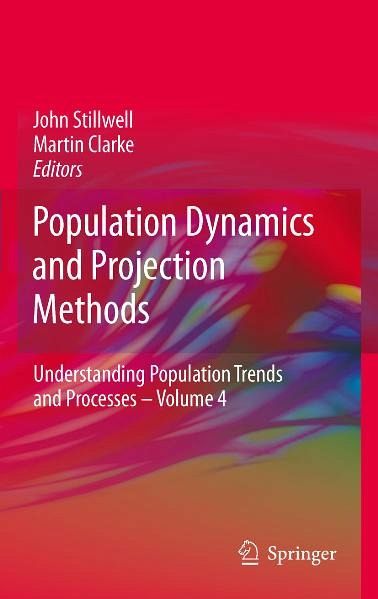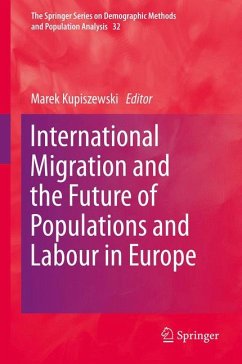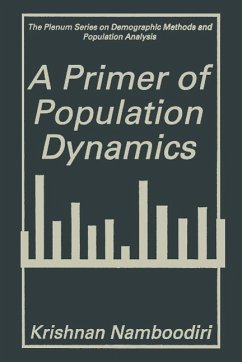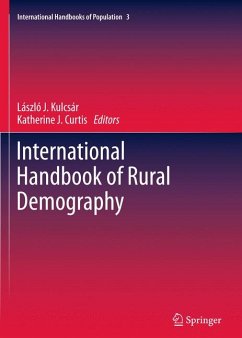
Population Dynamics and Projection Methods (eBook, PDF)
Versandkostenfrei!
Sofort per Download lieferbar
72,95 €
inkl. MwSt.
Weitere Ausgaben:

PAYBACK Punkte
36 °P sammeln!
Although the human population growth rate of the world has been declining since peaking in the early 1960s, the populations of individual countries are changing at different rates. Population dynamics at national level are partly determined by levels of fertility and mortality, but the impact of international migration is playing an increasingly important role. Moreover, internal migration plays a major part in population change at the sub-national level. This fourth volume in the series "Understanding Population Trends and Processes" is a celebration of the work of Professor Philip Rees. It c...
Although the human population growth rate of the world has been declining since peaking in the early 1960s, the populations of individual countries are changing at different rates. Population dynamics at national level are partly determined by levels of fertility and mortality, but the impact of international migration is playing an increasingly important role. Moreover, internal migration plays a major part in population change at the sub-national level.
This fourth volume in the series "Understanding Population Trends and Processes" is a celebration of the work of Professor Philip Rees. It contains chapters by contributors who have collaborated with Phil Rees on research or consultancy projects or as postgraduate students. Several chapters demonstrate the technical nature of population projection modelling and simulation methods while others illustrate issues relating to data availability and estimation. This book demonstrates the application of theoretical and modelling methods and addresses key issues relating to contemporary demographic patterns and trends.
This fourth volume in the series "Understanding Population Trends and Processes" is a celebration of the work of Professor Philip Rees. It contains chapters by contributors who have collaborated with Phil Rees on research or consultancy projects or as postgraduate students. Several chapters demonstrate the technical nature of population projection modelling and simulation methods while others illustrate issues relating to data availability and estimation. This book demonstrates the application of theoretical and modelling methods and addresses key issues relating to contemporary demographic patterns and trends.
Dieser Download kann aus rechtlichen Gründen nur mit Rechnungsadresse in A, B, BG, CY, CZ, D, DK, EW, E, FIN, F, GR, HR, H, IRL, I, LT, L, LR, M, NL, PL, P, R, S, SLO, SK ausgeliefert werden.












